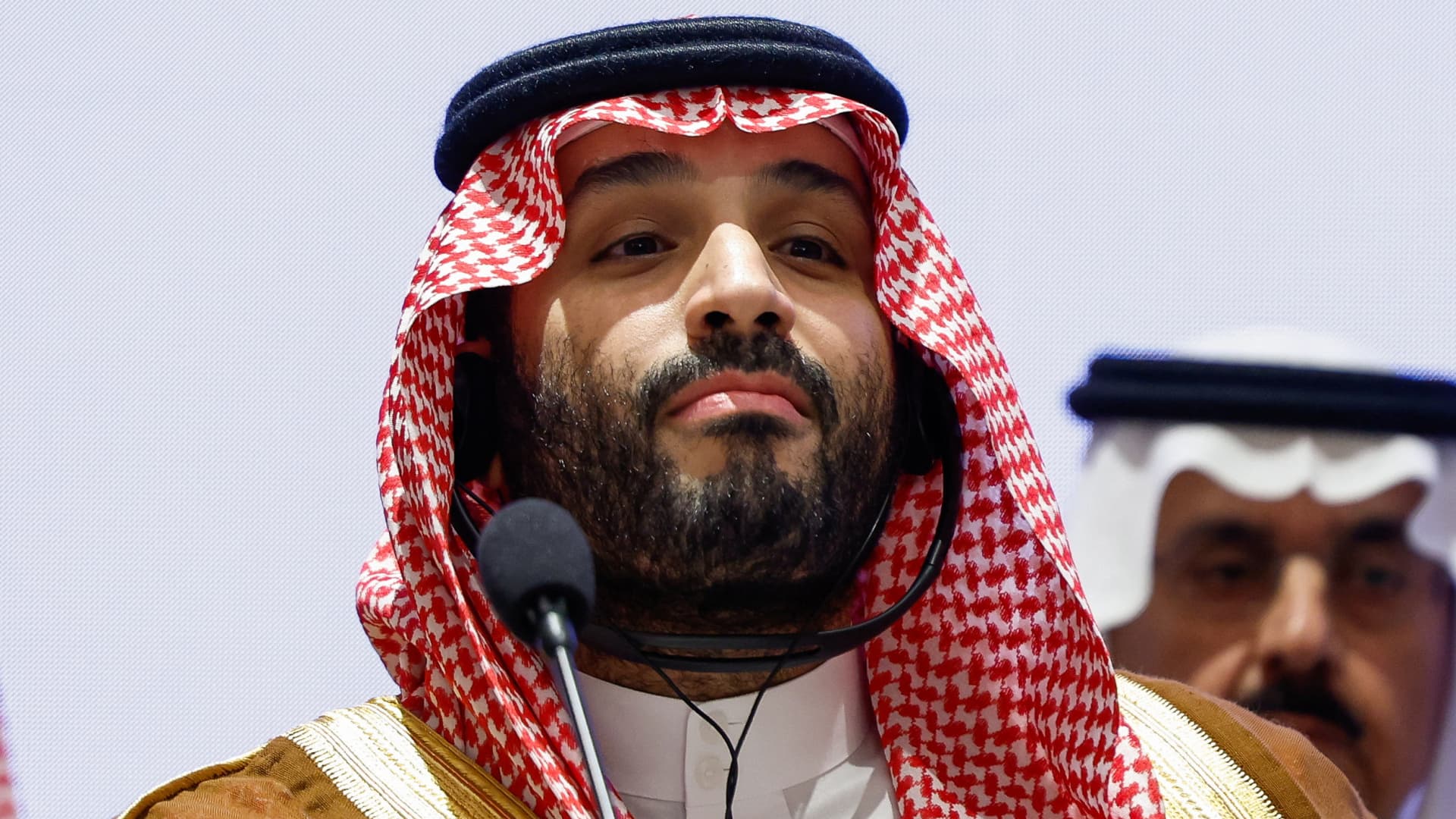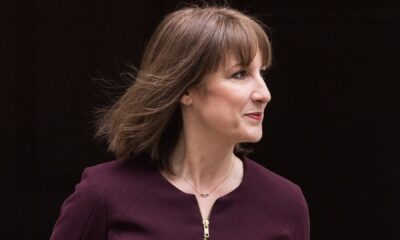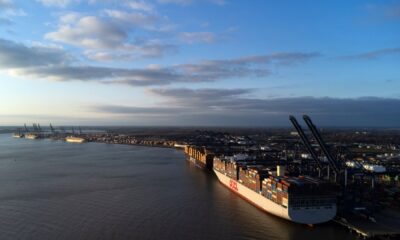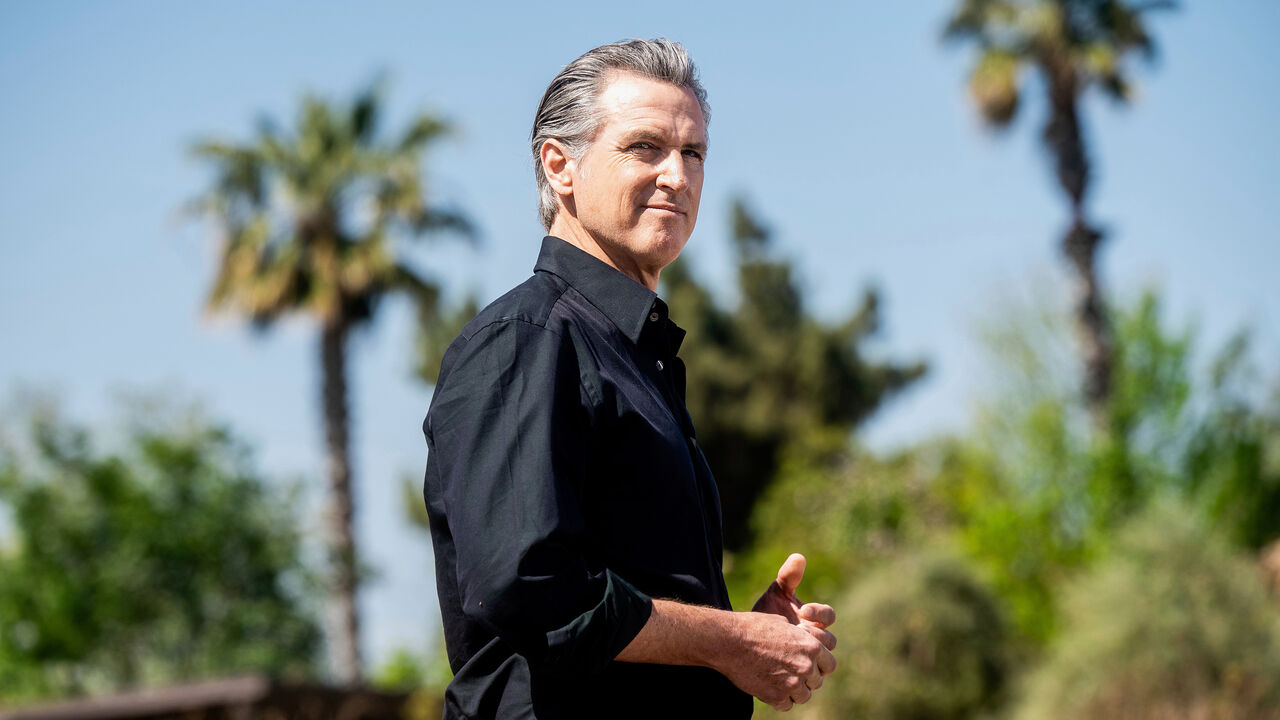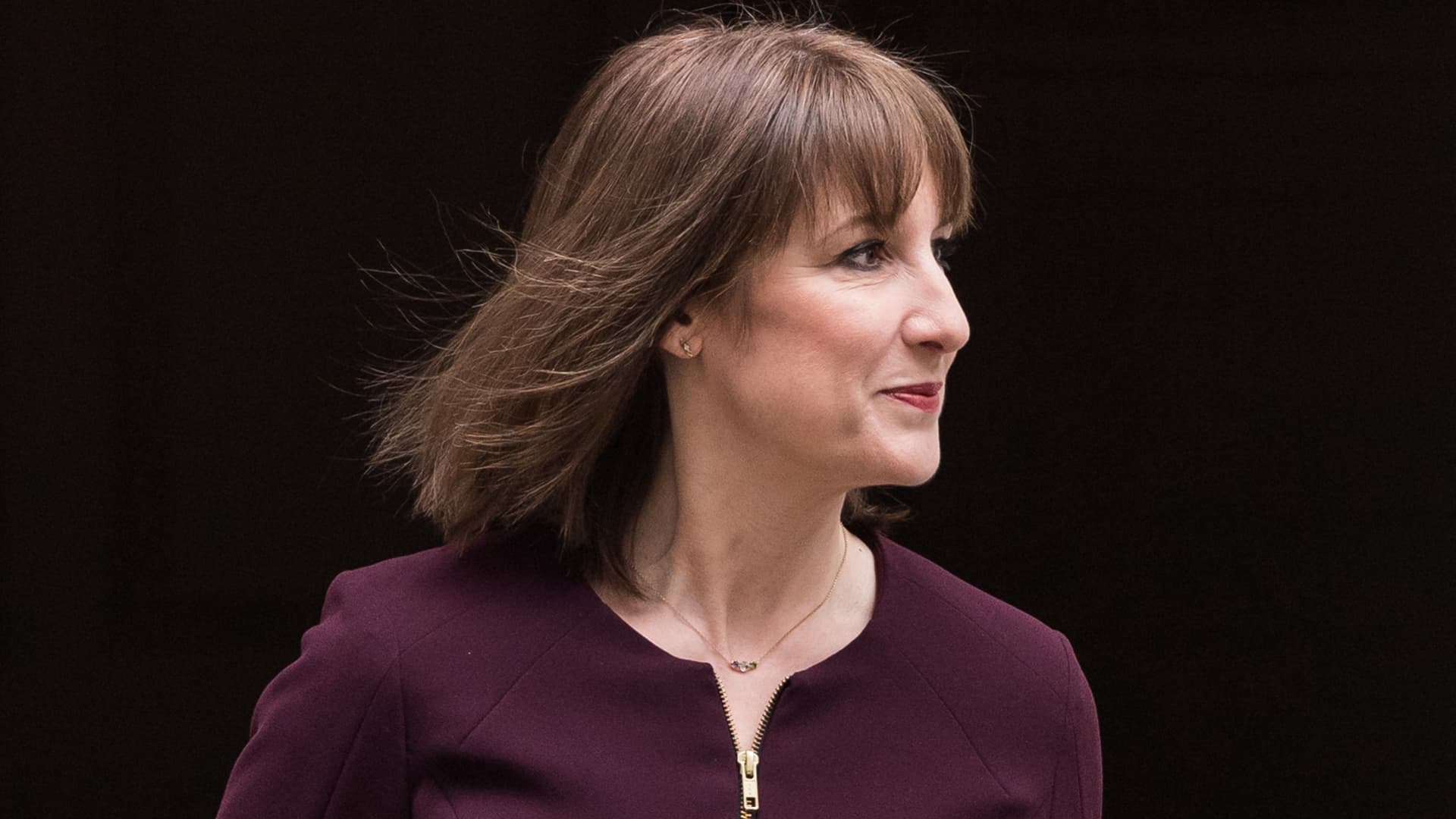A delegate arrives at the King Abdulaziz Conference Centre in Saudi Arabia’s capital Riyadh to attend the Future Investment Initiative (FII) forum.
Fayez Nureldine | Afp | Getty Images
Thousands of financiers, founders and investors are set to descend on the Saudi capital of Riyadh for the eighth edition of the kingdom’s Future Investment Initiative, the flagship economic conference at the heart of Vision 2030 — the multi-trillion dollar plan to modernize and diversify Saudi Arabia’s economy.
Described in past years by some attendees as a bonanza for Saudi cash, fund managers who spoke to CNBC this year draw a distinctly different picture as the kingdom simultaneously upholds more requirements for prospective fundraisers and investors, while also facing a revenue crunch amid lower oil prices and production.
“Without question, it’s gotten way more competitive to attract money from the kingdom,” Omar Yacoub, a partner at U.S.-based investment firm ABS Global, which manages nearly $8 billion in assets, told CNBC. “Everyone and anyone has been going to ‘kiss the rings,’ so to speak, in Riyadh.”
“Competition for capital has heated up, combined with other factors such as Saudis always having a ‘home bias’ towards investing, plus the broader dynamic of a tighter budget throughout the kingdom due to lower oil prices,” Yacoub said. “This has meant that investing internationally has become much more selective.”
As Saudi Arabia moves full steam ahead with its focus on domestic investment, it’s introduced more stringent conditions for foreigners coming to the kingdom to take capital elsewhere. The kingdom’s $925 billion sovereign wealth fund, the Public Investment Fund, saw its assets jump 29% to 2.87 trillion Saudi riyals ($765.2 billion) in 2023 — and local investment was a major driver.
Saudi Arabia’s recently-updated Investment Law seeks to attract more foreign investment as well — and it’s set itself a lofty target of $100 billion in annual foreign direct investment by 2030. Currently, that figure is still a long way from that goal as foreign investment has averaged around $12 billion per year since Vision 2030 was announced in 2017.
“It’s no longer about ‘take our money and leave’ — it’s about adding value,” said Fadi Arbid, founding partner and chief investment officer of Dubai-based investment manager Amwal Capital Partners. “Value meaning hiring, developing the asset management ecosystem, creating new products, bringing in talent, and investing in Saudi capital markets also. So it’s multi-faceted investment, not only a pure financial transaction. It’s beyond that.”
‘More disciplined, more rational’
At the same time, the kingdom is taking clear steps to scale back spending, as oil prices fall well below its fiscal breakeven figure and it continues with crude production cuts agreed upon by OPEC+.
That fiscal breakeven oil price — what the kingdom needs a barrel of crude to cost in order to balance its government budget — has risen sharply as Saudi Arabia pours trillions of dollars into giga-project NEOM.
The IMF’s latest forecast in April, put that breakeven figure at $96.20 for 2024; a roughly 19% increase on the year before, and about 28% higher than the current price of a barrel of Brent crude, which was trading at around $72.75 as of Monday morning.
“I don’t think Saudi has the same means that they had literally two years ago,” one regional investor, who requested anonymity in order to speak freely, said. Nonetheless, they added, the kingdom “remains one of the very few countries that still have money to give. It might be somewhat on pause today, but … now it’s more disciplined, more rational.”
Some fund managers with years of experience in the Gulf suggested it may be too little too late for many of the investors making their first forays to the kingdom.
“You should have started that process two, three, four years ago,” Arbid said. However, he added, “For those that are coming in queue now, that doesn’t mean that they shouldn’t position — because it’s a cycle, right? But now, I think they’re more deliberate about it — they say you need to commit to the country.”
One example is the kingdom’s headquarters law, which went into effect on Jan. 1, 2024, and requires foreign companies operating in the Gulf to base their Middle Eastern HQ offices in Riyadh if they want contracts with the Saudi government.
In the shadow of regional war
The glitzy conference, held in the opulent Ritz-Carlton Riyadh, also takes place against the backdrop of regional war and just over a year after Israel launched its war on Hamas in Gaza.
In that time, attacks between Israel and Iranian proxies including Hezbollah and Yemen’s Houthis have soared, with the Jewish state invading Lebanon in September. The region has been on tenterhooks awaiting Israel’s avowed revenge against Iran for its missile barrage over Tel Aviv and other parts of the country on Oct. 1.
Early on Saturday, Israel struck military sites in Iran targeting missile manufacturing factories. Israel’s military later said it had completed “targeted” attacks in Iran, adding that it was ready to “conduct defensive and offensive action.”
Oil prices and the Saudi economy appear to so far have stayed largely unscathed, dropping 4% early Monday after Israel’s weekend strike on Iran. A key reason for that may be the rapprochement deal the kingdom signed with Iran, brokered by China, in March 2023.
“Saudi has done a phenomenal job recently of shielding itself from geopolitical events,” Arbid said.
That is also aided by the fact that local investors make up the majority of market participants, and local investor confidence is strong. The Tadawul All Shares Index, Saudi Arabia’s leading stock market index, is up 16.48% in the last year.
Still, some analysts in the region warn that the expanding crises in the Middle East have the potential to cause further instability.
“The war has gradually escalated to the point where there is a de-facto regional war,” Aziz Alghashian, director of research at the Observer Research Foundation Middle East, told CNBC. “The ongoing war is not only a geopolitical crisis, but the continuation of it has potential to create more radicalization in and around the region.”
“Attracting FDI and tourism, while maintaining oil prices at a desired level, are key for keeping Saudi Arabia’s mega projects and diversification plans on track,” Alghashian said.
“This of course is complicated by regional war, and so economy and security go very much hand in hand.”

 Economics1 week ago
Economics1 week ago
 Economics1 week ago
Economics1 week ago
 Economics7 days ago
Economics7 days ago
 Finance1 week ago
Finance1 week ago
 Blog Post1 week ago
Blog Post1 week ago
 Economics1 week ago
Economics1 week ago
 Personal Finance7 days ago
Personal Finance7 days ago
 Economics1 week ago
Economics1 week ago
